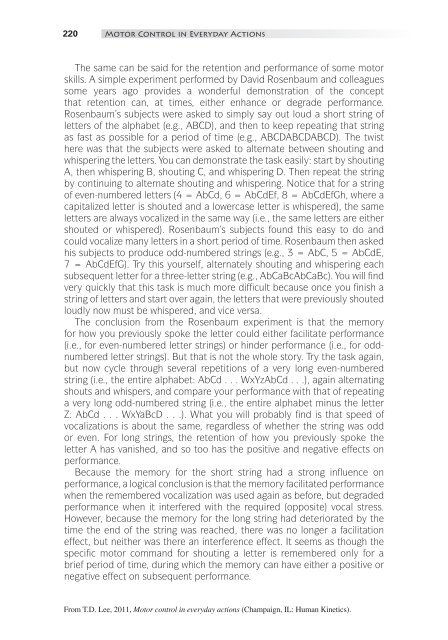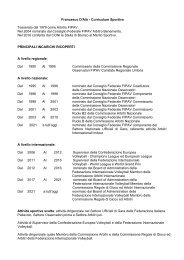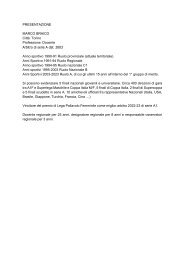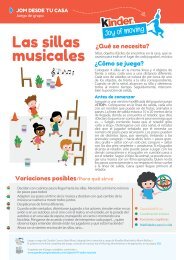You also want an ePaper? Increase the reach of your titles
YUMPU automatically turns print PDFs into web optimized ePapers that Google loves.
220 Motor Control in Everyday Actions<br />
The same can be said for the retention and performance of some motor<br />
skills. A simple experiment performed by David Rosenbaum and colleagues<br />
some years ago provides a wonderful demonstration of the concept<br />
that retention can, at times, either enhance or degrade performance.<br />
Rosenbaum’s subjects were asked to simply say out loud a short string of<br />
letters of the alphabet (e.g., ABCD), and then to keep repeating that string<br />
as fast as possible for a period of time (e.g., ABCDABCDABCD). The twist<br />
here was that the subjects were asked to alternate between shouting and<br />
whispering the letters. You can demonstrate the task easily: start by shouting<br />
A, then whispering B, shouting C, and whispering D. Then repeat the string<br />
by continuing to alternate shouting and whispering. Notice that for a string<br />
of even-numbered letters (4 = AbCd, 6 = AbCdEf, 8 = AbCdEfGh, where a<br />
capitalized letter is shouted and a lowercase letter is whispered), the same<br />
letters are always vocalized in the same way (i.e., the same letters are either<br />
shouted or whispered). Rosenbaum’s subjects found this easy to do and<br />
could vocalize many letters in a short period of time. Rosenbaum then asked<br />
his subjects to produce odd-numbered strings (e.g., 3 = AbC, 5 = AbCdE,<br />
7 = AbCdEfG). Try this yourself, alternately shouting and whispering each<br />
subsequent letter for a three-letter string (e.g., AbCaBcAbCaBc). You will find<br />
very quickly that this task is much more difficult because once you finish a<br />
string of letters and start over again, the letters that were previously shouted<br />
loudly now must be whispered, and vice versa.<br />
The conclusion from the Rosenbaum experiment is that the memory<br />
for how you previously spoke the letter could either facilitate performance<br />
(i.e., for even-numbered letter strings) or hinder performance (i.e., for oddnumbered<br />
letter strings). But that is not the whole story. Try the task again,<br />
but now cycle through several repetitions of a very long even-numbered<br />
string (i.e., the entire alphabet: AbCd . . . WxYzAbCd . . .), again alternating<br />
shouts and whispers, and compare your performance with that of repeating<br />
a very long odd-numbered string (i.e., the entire alphabet minus the letter<br />
Z: AbCd . . . WxYaBcD . . .). What you will probably find is that speed of<br />
vocalizations is about the same, regardless of whether the string was odd<br />
or even. For long strings, the retention of how you previously spoke the<br />
letter A has vanished, and so too has the positive and negative effects on<br />
performance.<br />
Because the memory for the short string had a strong influence on<br />
performance, a logical conclusion is that the memory facilitated performance<br />
when the remembered vocalization was used again as before, but degraded<br />
performance when it interfered with the required (opposite) vocal stress.<br />
However, because the memory for the long string had deteriorated by the<br />
time the end of the string was reached, there was no longer a facilitation<br />
effect, but neither was there an interference effect. It seems as though the<br />
specific motor command for shouting a letter is remembered only for a<br />
brief period of time, during which the memory can have either a positive or<br />
negative effect on subsequent performance.<br />
From T.D. Lee, 2011, Motor control in everyday actions (Champaign, IL: Human Kinetics).

















